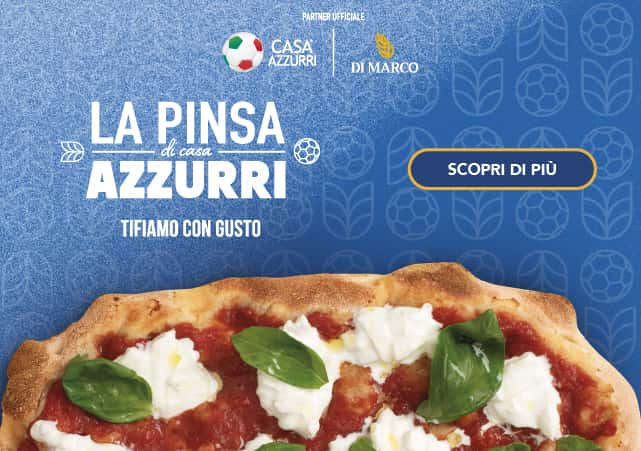We have pointed out many times how pinsa is experiencing exponential growth in popularity, both in Italy and abroad, and how this is mainly due to its perfect balance of lightness, taste and versatility.
Pinsa as a job and business opportunity
More and more people are enjoying pinsa; as a result, it is becoming an increasingly common choice on restaurant menus.
Many pizzerias are offering pinsa in addition to their traditional menu; many restaurants are serving special variants, such as sweet ones or as an appetizer; and the number of pinserias, which have decided to focus on innovation to stand out from the crowd and build their success, is growing.
This trend, which has been in the public eye for years, offers great opportunities in the job market, as it effectively creates a new profession, which will be increasingly in demand: the pinsaiolo, or pinsa-maker.
About the pinsaiolo
A pinsaiolo is a craftsman who specializes in the preparation of pinsa. So far, no doubt about it, but why was there the need to differentiate this figure from the much better-known figure of the pizza maker?
Quite simply, the pinsaiolo follows specific techniques for pinsa, which starts with different flours than pizza, requires special treatment of the dough, different leavening and particular baking. It is essential that these differences be preserved: pinsa, in fact, is an extraordinary job opportunity (and business opportunity, for entrepreneurs) precisely because it creates innovation and stands out in a natural and not just aesthetic way from a food that has been known for centuries. Bringing the two preparations too close together would make all the research that gave rise to pinsa useless and would not allow the creation of new market segments, to which our product owes its success. It is of course possible for a professional to be both a pizza maker and a pinsaiolo, but they must know how to handle the two dishes differently, respecting their characteristics for the good of both.
How does one become a pinsaiolo?
Becoming a professional pinsaiolo requires specific training and different skills from those needed to prepare other baked goods.
So, let's put ourselves in the shoes of someone who wants to take advantage of this opportunity, working in the pinsa world: what requirements should they have, and what should they do?
Passion for the art of pinsa
A basic requirement for becoming a successful pinsa maker is passion. The preparation of pinsa is not an easy job: just like cooks and pizza makers, pinsaioli are constantly under pressure and are judged on the quality of their work, that is, on their ability to satisfy customers who become more and more demanding over time. It is not a profession that can be improvised.
However, the pinsaiolo is also an extremely rewarding profession, which allows workers to experiment with new pairings, create unique dishes and offer customers memorable dining experiences. Passion and creativity drive pinsa makers to continually perfect their skills and overcome daily difficulties, rewarded by the satisfaction of seeing their customers return again and again. With no passion, you cannot achieve excellence.
Specific training
Training is fundamental to becoming a pinsaiolo. Pinsa, in fact, is the result of long research and a tradition that continues to evolve. Creativity, which we have mentioned, cannot be separated from solid technical skills, without which Corrado Di Marco's success cannot be replicated.
Issues such as dough and leavening, temperature management, rolling techniques, precooking and seasoning techniques require in-depth knowledge and cannot be left to chance. To this end, there are dedicated schools and training courses that accompany aspiring pinsaioli to gain professional skills, issuing useful certificates to speed up the process of entering the work world. In addition, these courses provide an understanding of current regulations and explain the steps necessary to obtain all relevant certifications, which are essential for operating in accordance with industry rules and standards.
Hands-on experience
Gaining experience is essential in all trades, and it is even more so for a pinsa maker. Not surprisingly, all courses consist of the right mix of theory and practice, but it is very important to practice even the end of the course so as not to forget the techniques learned.
Obviously, in this respect there is a lot of difference from one case to another: if the course is taken by a restaurant entrepreneur or a pizza maker in business, they will be able to put the teachings into practice from the very next day; if, on the other hand, the person taking the course is still looking for a job in the catering world, it may take some time from the end of the course to employment. At home, not everything is feasible, because there are faster methods (e.g., pre-cooked bases) and because some tools of the trade are usually missing (e.g., professional oven); however, one can well consider it an intermediate step, experimenting with doughs and delving into, for example, the subject of seasonings, which is independent of the context in which one works. Working then in a pinseria, alongside experienced professionals, allows you to acquire the tricks of the trade that are unlikely to emerge in a dedicated course, whose goal is to provide an overview of techniques, processing methods and ingredients.
Entrepreneurial skills
Pinsa makers do not necessarily have to work for others; in fact, they may have healthy entrepreneurial ambitions and want to open their own business.
In this case, in addition to technical skills, it is essential to develop managerial and entrepreneurial skills. There are specific courses, also in the restaurant industry, that offer the skills needed to run a business, from personnel management to financial planning, from marketing to logistics. In addition, it is possible to enlist the assistance of specialized consultants who can provide support in the start-up phase and in the day-to-day management of the business.


